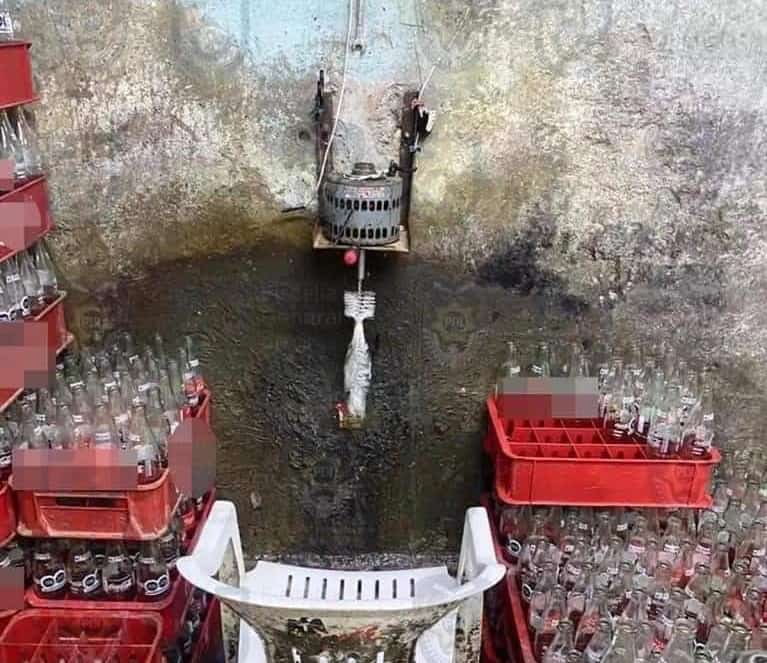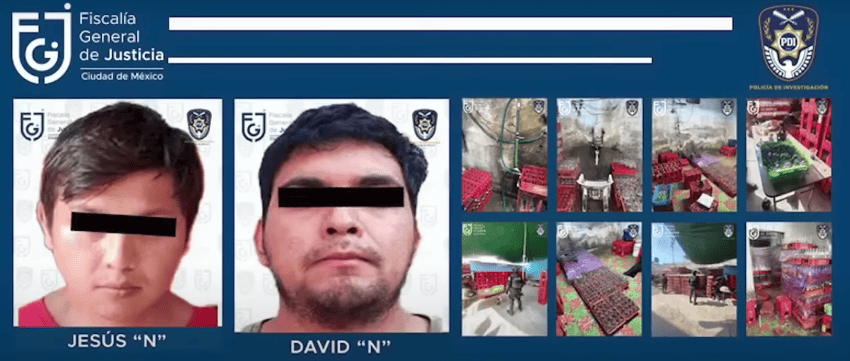Mexico City authorities have uncovered what appears to be a crime ring involved in the manufacture, bottling and distribution of fake Coca-Cola.
Ulises Lara, spokesman for the Mexico City Attorney General’s Office (FGJ), announced that police last week raided a property in the eastern borough of Iztapalapa and discovered hundreds of bottles of “possibly cloned” cola.

Images released by the FGJ show hundreds of plastic Coca-Cola crates containing thousands of empty and filled Coca-Cola bottles.
Lara said in a video message that two men were arrested at the raided property, located in the neighborhood of Santa Martha Acatitla Norte. One of the men apparently washed out empty bottles before they were refilled with fake Coke while the other was allegedly involved in the bottling and distribution of the counterfeit soda.
Authorities believe that a total of about 10 people worked at the bogus beverage plant.
Lara said there is evidence that the pirated Coke was sold to street food stands in Mexico City and the neighboring México state municipalities of Chalco and Nezahualcóyotl.

Authorities believe the alleged criminals sold 50 to 60 crates of the phony pop per day, with each crate going for 200 to 210 pesos. The fake Coke syndicate would have thus had daily revenue of between 10,000 and 12,600 pesos (about US $560-710).
Lara said that authorities are continuing their investigations and seeking to detain all those involved in the apparent crime ring.
Authorities took possession of the Iztapalapa property, where equipment such as hoses and pumps as well as stolen license plates and vehicles allegedly used to distribute the fake Coca-Cola were also found.
It is perhaps not surprising that criminals are making and selling fake Coke given that Mexicans are among the world’s largest consumers of Coca-Cola and other sugary drinks, and a wide range of counterfeit goods – collectively known as fayuca – are manufactured and/or commercialized here.
In light of last week’s discovery, several Mexican newspapers including El Universal and Excélsior published guides on how to tell the difference between counterfeit Coke and “the Real Thing.”
Mexico News Daily
